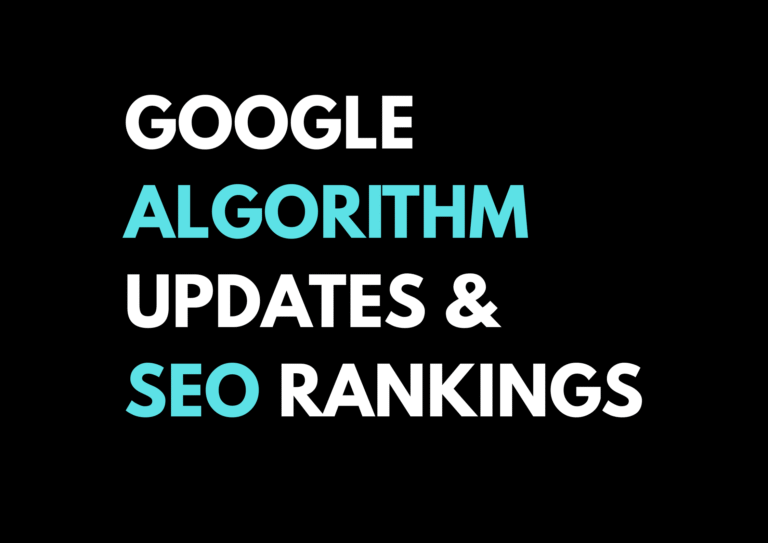
Contents
- 1 How Google Algorithm Updates Impact Your Website’s SEO Rankings in 2025What Are Google Algorithm Updates?Google algorithm updates are changes made to the search engine’s ranking system to improve the accuracy, relevance, and quality of search results. These updates determine how content is ranked when users search for specific keywords or topics.Think of the algorithm as a set of rules Google uses to decide which pages deserve to be shown at the top of the search results. When the algorithm changes, so do the rules—sometimes slightly, sometimes drastically.
- 1.1 Why Does Google Keep Updating Its Algorithm?Google’s goal is to deliver the best possible experience for its users. To do that, it continuously improves how it understands content, search intent, and website quality. Updates are meant to:Fight spam and manipulationPromote fresh and valuable contentImprove mobile and page speed experiencesUnderstand natural language and intent betterEncourage ethical SEO practices
- 1.2 Major Types of Google Algorithm UpdatesCore UpdatesBroad changes that affect how pages are evaluated.Impact entire sites, not just specific pages.Focus on content relevance, site authority, and trustworthiness.Spam UpdatesTarget websites that use deceptive techniques (e.g., keyword stuffing, link spam).Designed to penalize low-quality or manipulative SEO practices.Helpful Content UpdatesPromote content written for people, not just for search engines.Penalizes AI-generated, generic, or low-effort content.Page Experience UpdatesMeasure how users interact with your website.Focus on Core Web Vitals: loading speed, responsiveness, and visual stability.
- 1.3 Latest Algorithm Trends in 2025Search Intent and AI Understanding Google now uses AI models like MUM and BERT to understand user intent beyond keywords. It looks at context, synonyms, and sentence structure to find the most accurate answers.EEAT is More Important Than Ever Google rewards content that shows Experience, Expertise, Authoritativeness, and Trustworthiness. Real-world examples, testimonials, and author bios help boost your EEAT score.Mobile-First Indexing Google now indexes and ranks your site based primarily on the mobile version. A poor mobile experience can hurt rankings.Core Web Vitals Metrics like Largest Contentful Paint (LCP), Interaction to Next Paint (INP), and LayoCumulativeut Shift (CLS) have a strong impact on SEO.
- 1.4 How Algorithm Updates Impact SEO RankingsWhen Google rolls out an update, some websites might see:Increased traffic if they follow good SEO practicesRanking drops if they rely on outdated or spammy tacticsDe-indexing of thin or duplicate contentImproved rankings for websites with high-quality, helpful, and fast-loading pagesEven small updates can significantly impact your SEO if your content isn’t aligned with what Google values most.
- 1.5 How to Stay Safe and Improve RankingsPublish High-Quality Content Focus on creating unique, informative, and user-friendly content that solves real problems.Regularly Update Old Content Refresh outdated information, improve readability, and add new visuals or examples.Improve Technical SEO Ensure fast load times, proper internal linking, clean code, and mobile responsiveness.Build Authority and Trust Include author bios, references, case studies, reviews, and data to build credibility.Avoid Black-Hat SEO Never use unethical tactics like buying backlinks, stuffing keywords, or using hidden text.Use Tools Like Google Search Console Track ranking changes, fix technical errors, and understand how Google views your site.
- 1.6 Final ThoughtsGoogle algorithm updates are not meant to punish websites—they’re designed to help users find the best, most relevant answers. As a business or blogger, your focus should be on delivering value, keeping up with trends, and ensuring your site offers an excellent user experience.By doing so, you'll stay ahead of the curve and build long-term SEO success, no matter how often Google updates its algorithm.
How Google Algorithm Updates Impact Your Website’s SEO Rankings in 2025
What Are Google Algorithm Updates?
Google algorithm updates are changes made to the search engine’s ranking system to improve the accuracy, relevance, and quality of search results. These updates determine how content is ranked when users search for specific keywords or topics.
Think of the algorithm as a set of rules Google uses to decide which pages deserve to be shown at the top of the search results. When the algorithm changes, so do the rules—sometimes slightly, sometimes drastically.
Why Does Google Keep Updating Its Algorithm?
Google’s goal is to deliver the best possible experience for its users. To do that, it continuously improves how it understands content, search intent, and website quality. Updates are meant to:
Fight spam and manipulation
Promote fresh and valuable content
Improve mobile and page speed experiences
Understand natural language and intent better
Encourage ethical SEO practices
Fight spam and manipulation
Promote fresh and valuable content
Improve mobile and page speed experiences
Understand natural language and intent better
Encourage ethical SEO practices
Major Types of Google Algorithm Updates
Core Updates
Broad changes that affect how pages are evaluated.
Impact entire sites, not just specific pages.
Focus on content relevance, site authority, and trustworthiness.
Spam Updates
Target websites that use deceptive techniques (e.g., keyword stuffing, link spam).
Designed to penalize low-quality or manipulative SEO practices.
Helpful Content Updates
Promote content written for people, not just for search engines.
Penalizes AI-generated, generic, or low-effort content.
Page Experience Updates
Measure how users interact with your website.
Focus on Core Web Vitals: loading speed, responsiveness, and visual stability.
Core Updates
Broad changes that affect how pages are evaluated.
Impact entire sites, not just specific pages.
Focus on content relevance, site authority, and trustworthiness.
Spam Updates
Target websites that use deceptive techniques (e.g., keyword stuffing, link spam).
Designed to penalize low-quality or manipulative SEO practices.
Helpful Content Updates
Promote content written for people, not just for search engines.
Penalizes AI-generated, generic, or low-effort content.
Page Experience Updates
Measure how users interact with your website.
Focus on Core Web Vitals: loading speed, responsiveness, and visual stability.
Latest Algorithm Trends in 2025
Search Intent and AI Understanding
Google now uses AI models like MUM and BERT to understand user intent beyond keywords. It looks at context, synonyms, and sentence structure to find the most accurate answers.
EEAT is More Important Than Ever
Google rewards content that shows Experience, Expertise, Authoritativeness, and Trustworthiness. Real-world examples, testimonials, and author bios help boost your EEAT score.
Mobile-First Indexing
Google now indexes and ranks your site based primarily on the mobile version. A poor mobile experience can hurt rankings.
Core Web Vitals
Metrics like Largest Contentful Paint (LCP), Interaction to Next Paint (INP), and LayoCumulativeut Shift (CLS) have a strong impact on SEO.
Search Intent and AI Understanding
Google now uses AI models like MUM and BERT to understand user intent beyond keywords. It looks at context, synonyms, and sentence structure to find the most accurate answers.
EEAT is More Important Than Ever
Google rewards content that shows Experience, Expertise, Authoritativeness, and Trustworthiness. Real-world examples, testimonials, and author bios help boost your EEAT score.
Mobile-First Indexing
Google now indexes and ranks your site based primarily on the mobile version. A poor mobile experience can hurt rankings.
Core Web Vitals
Metrics like Largest Contentful Paint (LCP), Interaction to Next Paint (INP), and LayoCumulativeut Shift (CLS) have a strong impact on SEO.
How Algorithm Updates Impact SEO Rankings
When Google rolls out an update, some websites might see:
Increased traffic if they follow good SEO practices
Ranking drops if they rely on outdated or spammy tactics
De-indexing of thin or duplicate content
Improved rankings for websites with high-quality, helpful, and fast-loading pages
Even small updates can significantly impact your SEO if your content isn’t aligned with what Google values most.
Increased traffic if they follow good SEO practices
Ranking drops if they rely on outdated or spammy tactics
De-indexing of thin or duplicate content
Improved rankings for websites with high-quality, helpful, and fast-loading pages
How to Stay Safe and Improve Rankings
Publish High-Quality Content
Focus on creating unique, informative, and user-friendly content that solves real problems.
Regularly Update Old Content
Refresh outdated information, improve readability, and add new visuals or examples.
Improve Technical SEO
Ensure fast load times, proper internal linking, clean code, and mobile responsiveness.
Build Authority and Trust
Include author bios, references, case studies, reviews, and data to build credibility.
Avoid Black-Hat SEO
Never use unethical tactics like buying backlinks, stuffing keywords, or using hidden text.
Use Tools Like Google Search Console
Track ranking changes, fix technical errors, and understand how Google views your site.
Publish High-Quality Content
Focus on creating unique, informative, and user-friendly content that solves real problems.
Regularly Update Old Content
Refresh outdated information, improve readability, and add new visuals or examples.
Improve Technical SEO
Ensure fast load times, proper internal linking, clean code, and mobile responsiveness.
Build Authority and Trust
Include author bios, references, case studies, reviews, and data to build credibility.
Avoid Black-Hat SEO
Never use unethical tactics like buying backlinks, stuffing keywords, or using hidden text.
Use Tools Like Google Search Console
Track ranking changes, fix technical errors, and understand how Google views your site.
